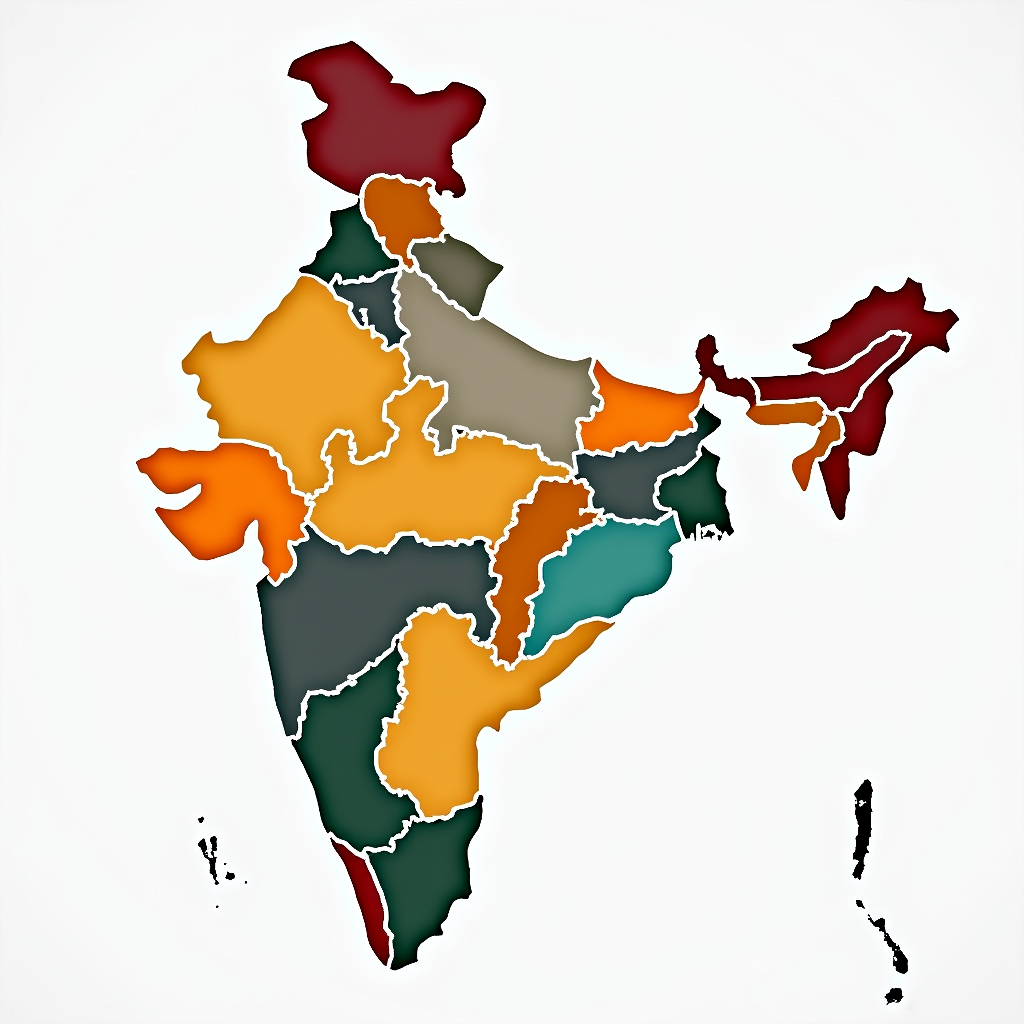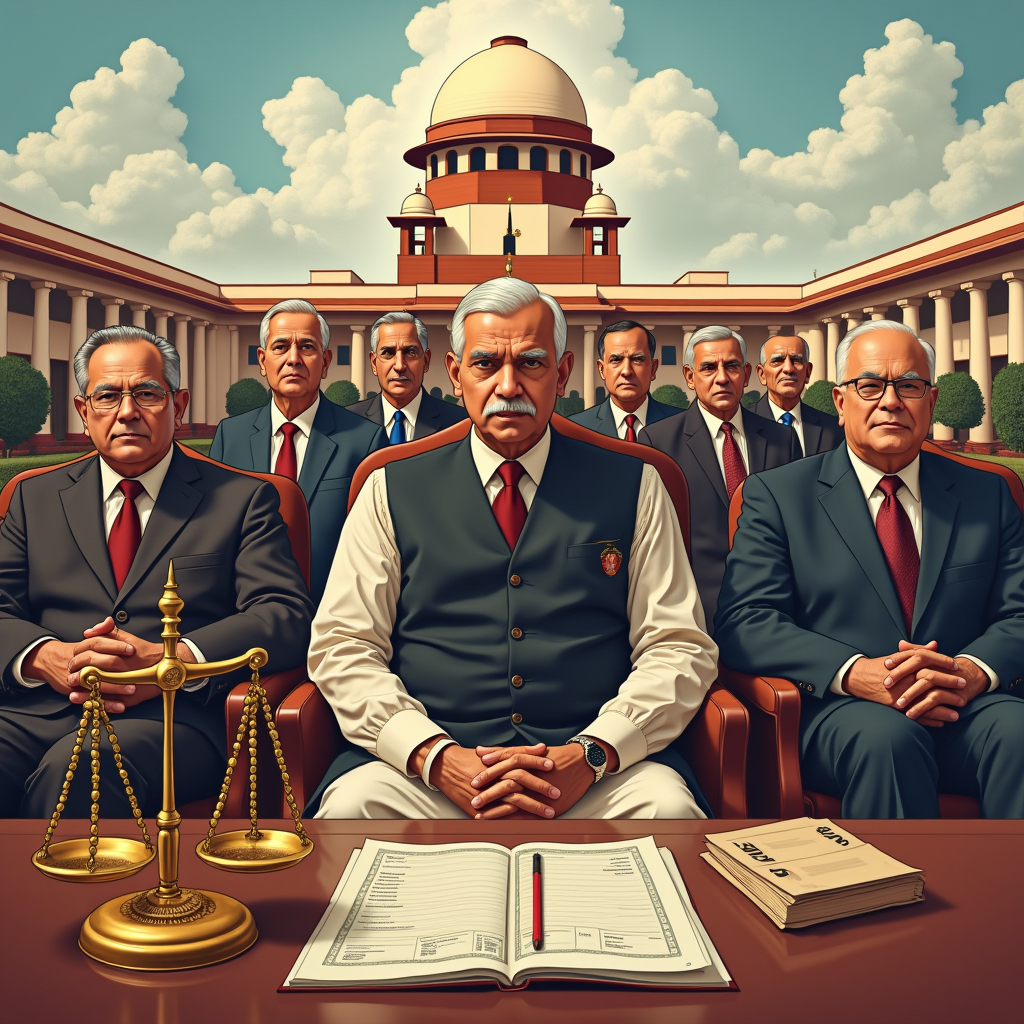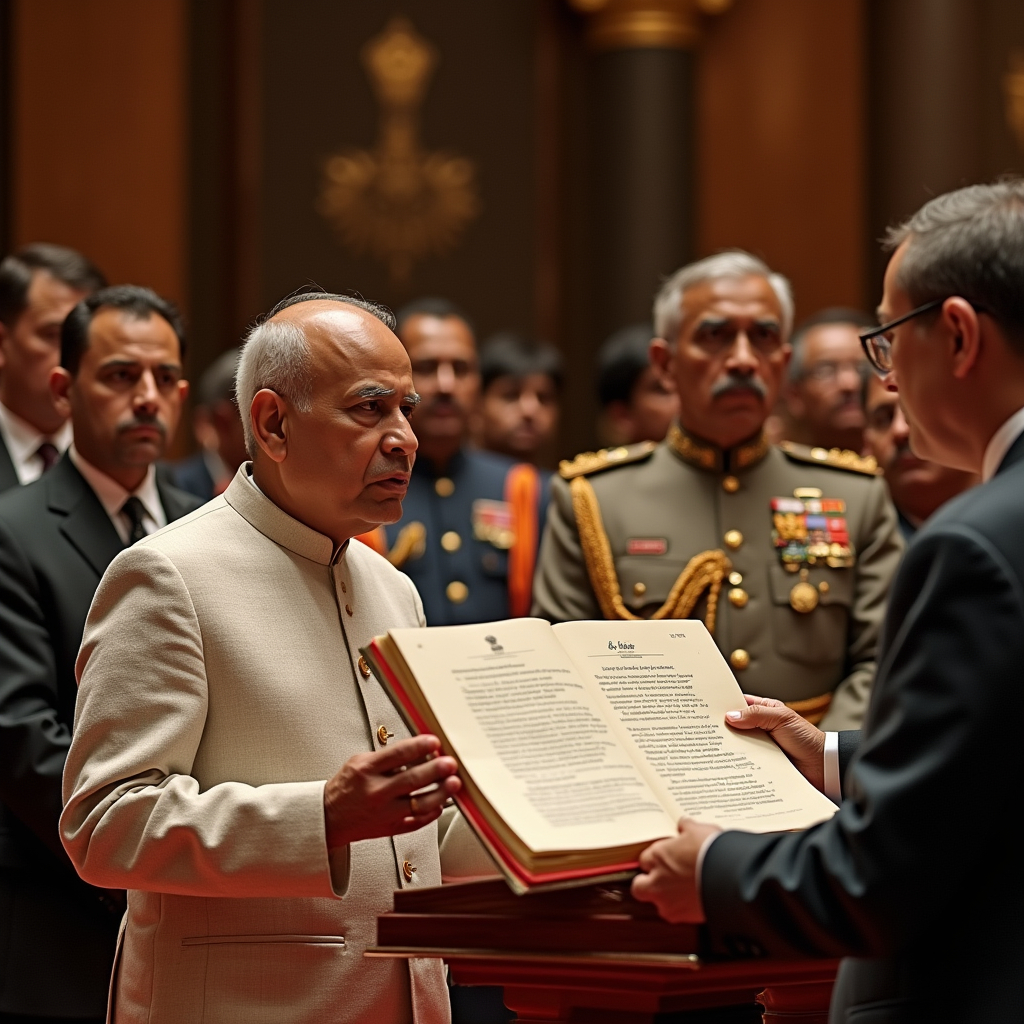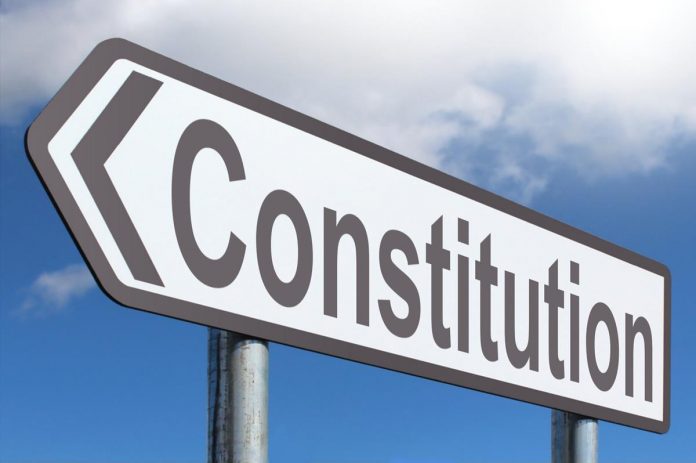This article is authored by Nidhi Bajaj and updated by Kruti Brahmbhatt. This article provides an introduction to the Schedules of the Indian Constitution. This article is an exhaustive explanation of the meaning, evolution, and list of Schedules in the Indian Constitution with the concerned Articles to the Schedules. It includes important case laws and a tabular representation of the Schedules and related articles.
Table of Contents
Introduction
The Constitution of India is an extensive document which provides the framework for the proper governance of the country. It contains the structure of government, provides rights and duties to its citizens, encompasses the political rights and principles, its procedures and the responsibilities to be taken for both the government and citizens. The schedules play a major role in the functioning of the Constitution by providing clarity over various subject matters in the Constitution. However, initially, the Constitution comprised Eight Schedules but presently, it has Twelve Schedules which address the specific aspect of governance. It includes the division of power between the Union and the State Government, the use of official languages, matters for panchayats and municipalities, etc.
These Schedules are a detailed list and explanations of constitutional provisions which bring more clarity and make the implementation easier. For instance, for oaths and affirmations, the Schedules provide a clear format and expression for taking an oath or affirmation for the authorities.
Meaning of Schedules in the Indian Constitution
Generally, the term “Schedule” means a plan, a list of items, or a specific order or sequence. In legal terms, the Schedules are the list of supplementary details, and tables which support the main text. These Schedules are essential for the execution of the provisions of any laws. These may consist of legislative powers, administration of areas or regulations for salaries and allowances. Under the Indian Constitution, Schedules are appendices that prescribe additional information and clarifications to the Articles given in the Indian Constitution. Schedules are appended towards the end of enactment to provide additional details and prescribe the forms for working out the policy underlying the provisions. The object of Schedules is to avoid encumbering the sections/articles with matters of excessive detail.
History of Schedules in India
The Schedules for the first time in Indian laws were mentioned in the Government of India Act, 1935. There were a total of 10 Schedules in this Act, which were related to the matters of the federal legislature, Governor-General and governors, oaths and affirmations, the composition of provincial legislatures, franchise, legislative lists and the Federal Railway Authority. A few of the Schedules were also related to Burma.
On 26 November 1949, the Constituent Assembly of India adopted the Constitution of India, which replaced the Government of India Act, 1935. At this time, the Constitution had 395 Articles which were divided into 22 parts and 8 Schedules.
Later on, through various amendments to the Constitution, 4 new Schedules were added to the Constitution, which are as follows:
- 9th Schedule was added through the 1st Constitution Amendment Act, 1951;
- 10th Schedule was added through the 52nd Constitution Amendment Act, 1985;
- 11th Schedule was added through the 73rd Constitution Amendment Act, 1992;
- 12th Schedule was added through the 74th Constitution Amendment Act, 1992.
List of Schedules
First Schedule
The First Schedule of the Constitution relates to the boundaries of the states and the union territories. It also includes the boundaries and territorial limits of the country. At present, there are 28 states and 8 union territories in the Union of India.
This schedule was adopted on October 15, 1949, addressing various issues of princely states and corrections in the state limits. The seats of the Lok Sabha are based on the size and population of the particular state or union territory under the First Schedule. It is related to Article 1 and Article 4 of the Indian Constitution. Major amendments are observed in this Schedule at the time of reorganisation of the state boundaries.
For example, recognition of Sikkim as a state, Goa, Daman, Diu, and Podicherry as the Union territories. It also includes the recent amendment of the addition of Ladakh and Jammu & Kashmir as Union territories.
Concerned articles of the Indian Constitution

- Article 1: This article provides the Name and territory of the Union, which states that India, that is Bharat, is a Union of States. It comprises states, union territories and other territories that may be acquired.
- Article 4: This article states that in cases where amendments are made as per Articles 2 and 3 of the Constitution, then such amendments shall be made in the First and Fourth Schedules as per the requirements, in supplemental, incidental and consequential matters.
Second Schedule
The Second Schedule contains provisions regarding the salaries and allowances payable to the President, Governors of States, Speaker and Deputy Speaker of Lok Sabha, Chairman and Deputy Chairman of Rajya Sabha and Judges of Supreme Court and High Courts. It consists of the following parts:
- Part A deals with provisions relating to the President and the Governors of States
- Part C contains provisions as to the Speaker and the Deputy Speaker of the House of People, the Chairman and Deputy Chairman of the Council of States, the Speaker and Deputy Speaker of the Legislative Assembly and the Chairman and Deputy Chairman of the Legislative Council of a State.
- Part D contains provisions relating to the judges of the Supreme Court and the High Court.
- Part E contains provisions as to the Comptroller and Auditor General of India.
Seventh Constitutional Amendment Act,1956, omitted Part B of the Schedule. Part B of the Second Schedule contended the provisions regarding the salaries and allowances of the Centre and State Ministers. Hence, the salaries and allowances of the Prime Minister or any other ministers, Advocate General or Attorney General are not covered in the Second Schedule.
Concerned articles of the Indian Constitution
- Article 59(3), Article 65(3) and Article 158(3): These articles entitle the President, Vice President and Governor of the state, respectively, to use the official residence without payment of rent and also entitle them to emoluments, allowances and privileges.
- Article 75(6): This article provides for salaries and allowances of ministers which shall be prescribed in the Second Schedule.
- Article 97 and Article 186: These articles provide the provisions for salaries and allowance of the Chairman and Deputy Chairman, and the Speaker and Deputy Speaker, as prescribed in the Second Schedule.
- Article 125: This article provides salaries, privileges and allowances to the Judges of the Supreme Court and Chief Justice as prescribed in the Second Schedule.
- Article 148(3): This article provides salary and other conditions of service of the Comptroller and Auditor General as prescribed in the Second Schedule.
- Article 164(5): This article provides for salaries and allowances of Ministers of the State which shall be prescribed in the Second Schedule.
- Article 221: The salaries, privileges and allowances of the High Court judges shall be as prescribed in the Second Schedule.
Third Schedule
The Third Schedule provides forms of oaths or affirmations for persons in decision-making positions, such as Ministers, Judges or Auditors. The purpose behind these oaths or affirmations is to ensure that the duties assigned to them are discharged faithfully, without any pressure or biases, to maintain secrecy in matters and to ensure that the post is not misused.
The Third Schedule provides for the forms of oaths or affirmations including.
- Form of oath of office for a union minister.
- Form of oath of secrecy for a union minister.
- Form of oath or affirmation to be made by a candidate for election to parliament.
- Form of oath or affirmation to be made by a member of parliament.
- Form of oath or affirmation to be made by the judges of the Supreme Court and the Comptroller and Auditor General of India.
- Form of oath of office for a minister for a state.
- Form of oath of secrecy for a minister for a state.
- Form of oath or affirmation to be made by a candidate for election to the legislature of a state.
- Form of oath or affirmation to be made by a member of a state legislature.
- Form of oath or affirmation to be made by the judges of the High Court.
Concerned articles of the Indian Constitution

- Article 75(4): The President administers oaths of office and secrecy to the Minister before the Minister handles his charge. This oath shall be according to the form prescribed in the Third Schedule.
- Article 99: The members of both houses shall take an oath or affirmation before taking their seat to the President or a person appointed by him.
- Article 124(6): This article prescribes that the person appointed to be a Judge of the Supreme Court shall take an oath or affirmation before the President as provided in the Third Schedule.
- Article 148(2): The person appointed as Comptroller and Auditor General of India shall before handling his office take an oath or affirmation before the President as provided in the Third Schedule.
- Article 164(3): This article prescribes that before a Minister of a State enters upon his office, the minister shall take an oath of office and secrecy according to the forms given in the Third Schedule.
- Article 84(a) & Article 173: These articles disqualify membership of the members of Central and State Legislatures, in case if he/she is not an Indian citizen, does not make or subscribe to an oath or affirmation before any authorised person by the Election Commission in the form given under Third Schedule.
- Article 188: This article prescribes that before the members of the Legislative Assembly or the Legislative Council of a State shall take up the charge, he/she shall take oath or affirmation before the Governor according to the form set out for the purpose in the Third Schedule.
- Article 219: This article prescribes that the person appointed to be a Judge of the High Court shall take an oath or affirmation before the Governor of the State.
The form of oath or affirmation of the President or Governor is not prescribed under the Third Schedule because these are expressly mentioned and covered under Articles 60 and 159 of the Indian Constitution.
Fourth Schedule
The Fourth Schedule provides the seat distribution for the Rajya Sabha. Out of 250 Rajya Sabha seats, 12 seats are reserved for the nomination by the President and the rest 238 seats are divided amongst the States and Union Territories.
The three amendments in this schedule are:
- The Andhra State Act, 1953
- The Bihar and West Bengal (Transfer of Territories) Act, 1956
- The States Reorganisation Act, 1956.
The highest number of Rajya Sabha seats comes from the State of Uttar Pradesh which is 31, followed by Maharashtra and Tamil Nadu which are 19 and 18 respectively. The Andaman and Nicobar Islands, Daman and Diu, Lakshadweep, and Chandigarh have no seats in the Rajya Sabha.
Hence, the Fourth Schedule is the allocation of seats in the Council of States.
Concerned articles of the Indian Constitution
There are two concerned articles for the Fourth Schedule, Article 4(1) and 80(2). Article 80(2) provides that the Rajya Sabha shall be filled by representatives as prescribed in the Fourth Schedule.
Fifth Schedule
The Fifth Schedule contains the provisions relating to the administration and control of Scheduled areas and Scheduled tribes. This schedule covers all such areas except the scheduled areas and scheduled tribes from the states of Assam, Meghalaya, Tripura and Mizoram. These communities which are declared as scheduled areas and schedule tribes observe some different administration and control in order to protect them. These are usually the areas which are hilly or are dense forest regions. The reason for this provision is to ensure the growth and development of the tribes who are illiterate and poor. They are given certain privileges and protections.
The recommendations from the Dhebar Commission are used as criteria for the declaration of Schedule Area under this Schedule. The criteria included the following:
- Preponderance of the tribal population
- Compactness and reasonable size of the area
- A viable administrative entity such as a district, block or taluk, and,
- Economic backwardness of the area as compared to the other neighbouring areas.
Further, this Schedule is divided into 4 parts:
Part A: General
It provides that the executive power of a state extends to the Scheduled areas included therein. The Governor of each State having Scheduled areas therein is required to make a report to the President regarding the administration of such areas.
Part B: Administration and Control of Scheduled Areas and Scheduled Tribes
It provides for the establishment of a Tribes Advisory Council in each state having Scheduled areas and on the direction of the President, in states having Scheduled tribes but not Scheduled areas. It also provides for the laws applicable to Scheduled areas.

Under the Fifth Schedule, Tribes Advisory Council shall consist of not more than 20 members, out of which three-fourths shall be representatives of the Scheduled Tribes in the State Assembly. The Council has the duty to provide advice in matters concerning the welfare and advancement of the Scheduled Tribes. The number of members, appointment of members, Chairman of the Council, meetings and procedure or any other matter regarding the council may be decided by the Governor.
The Fifth Schedule also provides that any law can be made applicable or non-applicable to a Schedule Area by the Governor through a public notification. Such a decision can be made to maintain peace and good governance in the Schedule Area. These laws can be regarding imposing prohibition or restriction on the transfer of land, regulating the land allotment or carrying on of business as money-lender.
Part C: Scheduled Areas
Under the Fifth Schedule, ‘Scheduled Areas’ means those areas that are declared by the order of the President to be Scheduled Areas. The President may order in a case where an area ceases to be a Scheduled Area, increase in the area of Schedule Areas, in case of rectification in the boundaries of the area, etc, only.
Part D: Amendment of the Schedule
The Parliament is empowered to make additions, variations or to repeal any of the provisions of this Schedule by making a law in this regard.
Concerned article of the Indian Constitution
- Article 244(1): It provides that the provisions of the Fifth Schedule shall apply to the administration and control of the Scheduled areas and Scheduled tribes in any State other than the States of Assam, Meghalaya, Tripura and Mizoram.
Sixth Schedule
The Sixth Schedule contains provisions for the administration of tribal areas in the States of Assam, Meghalaya, Tripura, and Mizoram. It provides for the administration of tribal areas as autonomous districts and autonomous regions. The tribal areas regulated/administered by the Schedule are:
- In the State of Assam
- The North Cachar Hills District
- The Karbi Anglong District
- The Bodoland Territorial Area District
- In the State of Meghalaya
- Khasi Hills District
- Jaintia Hills District
- The Garo Hills District
- In the State of Tripura
- Tripura Tribal Areas District
- In the State of Mizoram
- The Chakma District
- The Mara District
- The Lai District
The Sixth Schedule provides that the Governor may divide different Schedule Tribes into autonomous districts and divide the area or areas where they inhabit into autonomous regions. The Governor has the powers to include or exclude any such area, create a new autonomous district, increase or diminish any such area or unite two or more such districts. The Governor may also define boundaries or alter the names of the autonomous districts.

A District Council shall be constituted for each autonomous district consisting of not more than thirty members, out of whom not more than four persons shall be nominated by the Governor. Apart from this, there shall be a separate Regional Council for each area constituted as an autonomous region. However, the administration of such districts is not vested in the Sixth Schedule. The powers of these councils shall be restricted to the areas under their authority.
Rules for the first constitution of District Councils and Regional Councils shall be made by the Governor. This includes the composition of councils and allocations of seats, delimitation of constituencies for conducting elections, preparing electoral rolls and setting qualifications for voting, deciding the term of office, appointments of officers, and any other matters relating to or connected with elections or nominations. After the first constitution, the District or Regional Councils shall make rules on the above-mentioned entries.
The District Council can make laws with respect to all areas under their control except for those under Regional Councils. The District Council can make laws on entries like allotment, occupation or use of land of reserved forest, management of any forest which is not reserved forest, use of any canal, the regulation of the practice of jhum, the establishment of village or town committees, appointment or succession of Chiefs or headmen, and social customs. All these framed laws are to be assented to by the Governor.
The below listed are the powers of the District Councils and Regional Councils under the Sixth Schedule:
- Administer justice in autonomous districts and regions
- The District Council has powers to establish primary schools, etc.
- It has powers to assess and collect land revenue and to impose taxes in their respective areas
- It can issue licences or leases for the purpose of prospecting for, or extracting minerals in their respective areas
- District Councils have powers to make regulations for the control of money-lending and trading by non-tribals.
- It can publish laws, rules and regulations under this Schedule.
- A report has to be filed before the District Council for discussion of estimated receipts and expenditures regarding the autonomous districts. This report has to be shown separately in the annual financial statement.
The below listed are the powers of the Governor under Sixth Schedule of the Constitution.
- A Commission shall be appointed by the Governor to examine and report the matters relating to the administration of the autonomous districts and autonomous regions. These reports shall be before the State legislature with the Governor’s recommendations.
- The Governor may annul or suspend the acts and resolutions which are passed by the District and Regional Council when the Governor feels that it is likely to endanger the safety of India. The Governor may also suspend the Council or its power to prevent such acts in future.
- The Governor may dissolve the District or Regional Council based on the Commission’s recommendations. The Governor shall direct elections for reconstitution of the Council or assume the administration of such an area under himself for a period not more than twelve months.
- The Governor may exclude any area from autonomous districts in forming constituencies in such districts.
Concerned articles of the Indian Constitution
- Article 244(2): This article states that the provisions of the Sixth Schedule shall apply to the administration of the tribal areas in the States of Assam, Meghalaya, Tripura and Mizoram.
- Article 275(1): This article states that the Union government may provide grants-in-aid to the state who need assistance. These grants are paid from the Consolidated Fund of India, these grant-in-aid are especially for the schemes that promote the welfare of Scheduled Tribes and improve the administration of Scheduled Areas.
Seventh Schedule
The Seventh Schedule provides a division of powers to make laws between the Center and State; it is similar to the division provided in the Government of India Act, 1935. Herein, the Union Government is given more power in comparison to the states. The Seventh Schedule provides the three lists, Union List, State List and Concurrent List. Initially, there were 97 entries in the Union list, 61 entries in the State List and 47 entries in the Concurrent List, however, there were amendments made through 88th Constitutional Amendment Act, 2003 and 42nd Constitutional Amendment Act, 1976. The Parliament and state legislatures have the power to make laws with respect to any of the matters falling within their field of legislation under Article 246 read with the Seventh Schedule of the Constitution.
The Seventh Schedule contains three lists that provide for the fields of legislation:

- Union List: The Union List enumerates the items/entries with respect to which the Parliament has the exclusive power to legislate. The Union List in the First List comprises 97 items in the list. A few of them are the defence of India, naval, military, and air forces; atomic energy, foreign affairs, war and peace, citizenship, extradition, currency, railways, post and telegraph, banking, insurance, Reserve Bank of India, census, etc.
- State List: The State List in the Second List enumerates the entries with respect to which the state legislature has the exclusive power to legislate. The State List comprises 66 items in the list. A few of them are police, local government, public health and sanitation, intoxicating liquors, taxes on agricultural income, water, land, fisheries, gas and gas works, markets and fairs, pilgrimages, animal husbandry, relief for the disabled and unemployable, betting and gambling, treasure trove, prison reforms, etc.
- Concurrent List: Concurrent List is the Third List and it enumerates the entries with respect to which both parliament and the state legislature have the power to make laws. For example, criminal law and procedure, transfer of property other than agricultural land, contracts, trusts, actionable wrongs, civil procedure, evidence and oaths, forests, etc. As the name suggests, both the Union Parliament and the state legislatures are vested with concurrent powers of legislation with regard to matters contained in the Concurrent List.
Despite this clear division of power in making laws, there are conflicts between Union and State Governments. At times, the interpretation of the provisions of the lists has led to inter-state disputes.
Concerned article of the Indian Constitution
- Article 246: This article prescribed that the Parliament has exclusive power to make laws with respect to any of the matters provided in List 1 of the Seventh Schedule, which is the Union list. Further, the State has the power to make laws for the matters in List 2 of the Schedule and at last, both the Parliament and State legislature have the power to make laws on the matter provided in the Concurrent List. The Parliament can make laws regarding any matter for the territory of India except the matter included in the State List.
Eighth Schedule
India being a diverse country, has many languages out of which a few of them are declared as official languages. This Schedule provides a list of “official languages” of the country. Initially, Hindi was declared as the official language of the country which was later amended and many other languages were added. There were 14 languages in the Schedule but presently it contains 22 languages namely:
- Assamese
- Bengali
- Bodo
- Dogri
- Gujarati
- Hindi
- Kannada
- Kashmiri
- Konkani
- Maithili
- Malayalam
- Manipuri
- Marathi
- Nepali
- Odia
- Punjabi
- Sanskrit
- Santhali
- Sindhi
- Tamil
- Telugu
- Urdu
Concerned articles of the Indian Constitution
- Article 344: This article prescribes the commencement of a commission and committee of Parliament on official language. This commission shall be constituted after the expiry of ten years from the last commencement. This commission has to recommend to the President the progressive use of the Hindi language for official purposes, restrictions on the use of the English language for all or any of the official purposes, etc.
- Article 346: This article provides the official language for communication between one State and another or between a State and the Union. Herein, the language which is authorised by the Union for official purposes shall be the official language for inter-state communication. However, in cases where two or more States agree that the Hindi language should be the official language for communication, it can be used for communication.
- Article 351: Under this article, it is the duty of the Central Government to promote the Hindi language to serve as a common means of communication. This includes encouraging the use of Hindi and other languages mentioned in the Eighth Schedule of the Constitution. Additionally, the government must try to draw vocabulary, primarily from Sanskrit and from other languages whenever necessary.
Ninth Schedule
Article 31B of the Constitution provides for ‘validation of certain acts and regulations specified in the Ninth Schedule.’ The Ninth Schedule was added to the Constitution by the Constitution (First Amendment) Act, 1951. The object behind adding the Ninth Schedule was to protect certain acts and regulations from being declared void on the ground that they violate the fundamental rights provided under Part III of the Constitution.

Thus, the Ninth Schedule contains a list of enactments that are immune from being challenged in a court of law on the ground that they violate the fundamental rights of any citizen. Originally, there were only 13 laws in the Ninth Schedule but at present, there are 284 laws provided under the Ninth Schedule. Some of the laws mentioned under the Ninth Schedule are as follows:
- The Bihar Land Reforms Act, 1950
- The Bombay Tenancy and Agricultural Lands Act, 1948
- The Mysore Land Reforms Act, 1961
- The Punjab Security of Land Tenures Act, 1953
- The Delhi Land Reforms Act, 1954
- The Industries (Development and Regulation) Act, 1951
- The Coking Coal Mines (Nationalisation) Act, 1972
- The Kerala Agricultural Workers Act, 1974
- The West Bengal Land Reforms Tribunal Act, 1991
The continuous increase in the number of laws on the list was concerning because of the clear misuse of the Ninth Schedule. Herein, the laws were protected from judicial review which might be unconstitutional. The Supreme Court in the case of Kesavananda Bharati Sripadagalvaru vs. State of Kerala and Anr (1973), held that the court can declare any law unconstitutional if it violates the basic structure of the Indian Constitution. The court observed that there is a clear division of powers between the Union and the States under the Seventh Schedule, this maintains a clear balance of power in the federal structure.
Further, in the case of Waman Rao and Ors vs. Union of India (1981), the Supreme Court held that the subject under the Ninth Schedule after 24th April 1973, shall be challenged on the basis of their constitutional validity. In the case of I.R. Coelho (Dead) by Lrs vs. State of Tamil Nadu & Ors (2007), the Supreme Court has held that where a legislation held to be violative of any of the fundamental rights is subsequently incorporated in the Ninth Schedule after 24th April 1973, then such a violation shall be open to challenge on the ground that it destroys the basic structure under Article 21 read with Article 14, Article 19.
Concerned articles of the Indian Constitution
- Article 31B: This article provides that no Acts under the Ninth Schedule be deemed to be void, or shall ever become void, on the basis that they are inconsistent with the rights conferred in Part III of the Constitution. However, these can be subject to repeal or amendment by the Legislature. Hence, these laws are protected from judicial review, which ensures that even if they violate fundamental rights, they can’t be termed void. This Article is retrospective in nature.
Tenth Schedule
The Tenth Schedule of the Constitution contains provisions as to disqualification on the ground of defection. The Tenth Schedule was added by the Constitution (Fifty-second Amendment) Act, 1985 to combat the evil of political defections and is also called the ‘Anti-defection Law’.
The Constitution lays down that a person shall be disqualified for being a member of either House of Parliament or of either House of a State Legislature if he is so disqualified under the Tenth Schedule.
The Tenth Schedule contains the following provisions:
- Disqualification of members of Parliament and State Legislature on the grounds of defection
- Members of political parties
A member of a House belonging to any political party becomes disqualified for being a member of the House:
- If he voluntarily gives up his membership in such a political party; or
- If he votes or abstains from voting in such House contrary to any direction issued by his political party without obtaining prior permission of such party and such act has not been condoned by the party within 15 days.
- Independent members
An independent member of a House (who has been elected without being set up as a candidate by any political party) becomes disqualified for being a member of the House if he joins any political party after such election.
- Nominated members
A nominated member of a House becomes disqualified from being a member of the House if he joins any political party after the expiry of six months from the date on which he takes his seat in the House.
- Exceptions
The disqualification on the ground of defection does not apply in the following two cases:

- In the case of a merger of a political party with another political party, that is to say:
- the member joins another political party or the new party formed as the result of a merger or
- the member does not accept the merger and opts to function as a separate group
- In case a member, after being elected as the presiding officer of the House, voluntarily gives up the membership of his party (and does not rejoin that party as long as he holds that office) or rejoins it after he ceases to hold that office.
- Deciding authority
Any question regarding disqualification arising out of defection is to be decided by the presiding officer of the House.
The presiding officer of a House is empowered to make rules to give effect to the provisions of the Tenth Schedule.
In the case of Kihoto Hollohan vs. Zachillhu & Others(1992), in this case, the petitioners argued that the 52nd Amendment Act, 1985 does make changes to certain parts of the Constitution which requires ratification by at least half of the State legislatures. Further, the petitioners also argued that it takes away the power of judicial review and that the Tenth Schedule violates Article 105 and Article 194 of the Constitution. Additionally, giving powers of disqualifications to the Speaker might be unfair. The Supreme Court upheld the constitutional validity of the Tenth Schedule. It was also held by the court that the decision of the Speaker disqualifying a member on the ground of defection is subject to judicial review. Also, for maintaining political stability restrictions under the Tenth Schedule were justified.
Similarly, in the case of Keisham Meghachandra Singh vs. The Hon’ble Speaker Manipur (2020), the 52nd Amendment changes were challenged on the basis of constitutional validity. The Supreme Court held that the Tenth Schedule does not violate the basic structure of the Constitution. The court observed that these were reasonable restrictions on the legislators’ freedom of speech and expression.
Concerned articles of the Indian Constitution
- Article 102(2): This article provides that a person shall be disqualified from being a member of the Parliament if that person is disqualified under the Tenth Schedule of the Constitution.
- Article 191(2): This article provides that a person shall be disqualified from being a member of the State Legislative Assembly or Legislative Council if that person is disqualified under the Tenth Schedule of the Constitution.
Eleventh Schedule
Added to the Constitution by the Constitution (Seventy-third Amendment) Act, 1992, the Eleventh Schedule deals with the powers, authority, and responsibilities of Panchayats. This provides the powers and functions of the Panchayats for governance in rural areas. This is a three-tier system, which has Gram Panchayats at the village level, Panchayat Samitis at the block level and Zilla Parishads at the district level. It contains 29 functional items of the panchayats, some of which are mentioned below:
- Agriculture
- Land improvement, implementation of land reforms, land consolidation and soil conservation
- Minor irrigation, water management and watershed development
- Animal husbandry, dairying and poultry
- Fisheries
- Non-conventional energy sources
- Poverty alleviation programme
- Education, including primary and secondary schools
- Technical training and vocational education
- Adult and non-formal education
- Libraries
- Cultural activities
- Markets and fairs
- Health and sanitation including hospitals, primary health centres and dispensaries
Concerned Articles of the Indian Constitution
- Article 243G: This article enables panchayats to make decisions on the matters provided in the Eleventh Schedule of the Constitution. This includes the powers, authority and responsibilities of panchayats to prepare plans for economic development and social justice.
Twelfth Schedule
The Twelfth Schedule deals with the powers, authorities, and responsibilities of the municipalities. It was also added by the Constitution (Seventy-third Amendment) Act, 1992. The structure for the Municipal bodies is Nagar Nigams, Nagar Palikas and Nagar Panchayats. Which are Nagar Panchayats, Municipal Council and Municipal Corporations. It contains 18 functional items of the municipalities that are mentioned below:
- Urban planning including town planning.
- Regulation of land use and construction of buildings.
- Planning for economic and social development.
- Roads and bridges.
- Water supply for domestic, industrial and commercial purposes.
- Public health, sanitation conservancy and solid waste management.
- Fire services.
- Urban forestry, protection of the environment and promotion of ecological aspects.
- Safeguarding the interests of weaker sections of society, including the handicapped and mentally retarded.
- Slum improvement and upgradation.
- Urban poverty alleviation.
- Provision of urban amenities and facilities such as parks, gardens, and playgrounds.
- Promotion of cultural, educational and aesthetic aspects.
- Burials and burial grounds; cremations, cremation grounds and electric crematoriums.
- Cattle pounds; prevention of cruelty to animals.
- Vital statistics including registration of births and deaths.
- Public amenities include street lighting, parking lots, bus stops and public conveniences.
- Regulation of slaughterhouses and tanneries.
Concerned articles of the Indian Constitution
- Article 243W: This article provides powers, authorities and responsibilities to municipalities to govern urban areas. It enables the State Legislature to give authority to the municipalities to function as an institution of self-governance for the matters provided in the Twelfth Schedule of the Constitution.
List of Schedules of the Indian Constitution
Following is a list of Schedules in the Indian Constitution and the articles they are read with:
| SCHEDULE | SUBJECT MATTER | CONCERNED ARTICLES |
| First Schedule | List of States and Union territories and their respective territories | Articles 1 and 4 |
| Second Schedule | Provisions relating to emoluments, allowances and privileges of the President, Governor of States, Judges of the Supreme Court and High Court etc. | Articles 59(3), 65(3), 75(6), 97, 125, 148(3), 158(3), 164 (5), 186 and 221 |
| Third Schedule | Forms of Oaths or affirmations | Articles 75(4), 99, 124(6), 148(2), 164(3), 188 and 219 |
| Fourth Schedule | Allocation of seats in the Council of States | Articles 4(1) and 80(2) |
| Fifth Schedule | Provisions as to administration and control of Scheduled Areas and Scheduled Tribes | Article 244(1) |
| Sixth Schedule | Provisions as to administration and control of Tribal Areas in the States of Assam, Meghalaya, Tripura and Mizoram | Article 244(2) and 275(1) |
| Seventh Schedule | The three lists namely the Union List, State List and Concurrent List deal with the subject-matter of legislation | Article 246 |
| Eighth Schedule | Languages | Article 344(1) and 35 |
| Ninth Schedule | Validation of certain acts and regulations i.e. list of Acts under Article 31B | Article 31B |
| Tenth Schedule | Provisions as to disqualification on the ground of defection | Article 102(2) and 191(2) |
| Eleventh Schedule | Matters in respect of which schemes for economic development and social justice are to be implemented by Panchayats i.e. powers and responsibilities of Panchayats | Article 243G |
| Twelfth Schedule | Matters in respect of which Municipalities have been endowed powers and authority to enable them to function as institution of self-government i.e. powers and responsibility of Municipalities | Article 243W |
Conclusion
The schedules under the Indian Constitution are provided to lessen the complications of the provisions. It ensures smooth functioning and easy revisions of the provisions. These revisions and amendments in the schedules of the Constitution make it effective and efficient in this growing time. The schedules clearly divide and allocate powers and responsibilities in the interest of the citizens of the country.
For instance, the bifurcation of the powers in Seventh Schedule allows the State and Central Government to exercise their powers on the defined subjects. The establishment of administrative bodies such as district councils, regional councils, panchayats, and municipalities are a clear example of urban planning, protection of interests of scheduled tribes and areas, and a progressive approach for the rural areas.
Frequently Asked Questions (FAQs)
What are the Schedules in the Indian Constitution?
The Schedules of the Indian Constitution are additional details and information to the articles given the Constitution. These Schedules include lists of states and union territories of India, provisions for salaries and allowances, allocations of seats in Rajya Sabha, division of power between the State and Center Government, list of official languages, and powers, authority and responsibilities to Panchayats and Municipalities.
What was added through the 73rd and 74th Constitutional Amendment Acts?
The Eleventh and Twelfth Schedules were added to the Indian Constitution through the 73rd and 74th Constitutional Amendments. These schedules empower self-governance amongst the urban and rural areas. There are 29 matters in the Panchayats and 18 matters in the Municipalities. These Panchayats and Municipalities are given power, authority and responsibilities through the Eleventh and Twelfth Schedules.
Are oaths and affirmations for the President and Governor provided in the Third Schedule?
No, the oaths and affirmations for the President and Governor are not given in the Third Schedule in the Indian Constitution. These oaths and affirmations are prescribed in Article 60 and Article 159 of the Indian Constitution.
What are Anti-defection laws?
Anti-defection laws provide the grounds on which a Member of the Legislative Assembly or Member of Parliament may lose his/her privileges as an elected representative of the party. When a member voluntarily gives up the membership from the party, votes against the party mandate or joins any other party, then the said member will be disqualified from the party.
References
- https://www.indiacode.nic.in/bitstream/123456789/16124/1/the_constitution_of_india.pdf
- Constitutional Law of India, Narender Kumar, Tenth Edn.
- Indian Polity, M. Laxmikanth, Fifth Edn.
- INDIAN CONSTITUTIONAL LAW, M P JAIN, 7TH EDITION, LEXISNEXIS
- https://ncst.nic.in/sites/default/files/documents/central_government/File415.pdf
Students of Lawsikho courses regularly produce writing assignments and work on practical exercises as a part of their coursework and develop themselves in real-life practical skills.
LawSikho has created a telegram group for exchanging legal knowledge, referrals, and various opportunities. You can click on this link and join:
Follow us on Instagram and subscribe to our YouTube channel for more amazing legal content.
 Serato DJ Crack 2025Serato DJ PRO Crack
Serato DJ Crack 2025Serato DJ PRO Crack










 Allow notifications
Allow notifications


